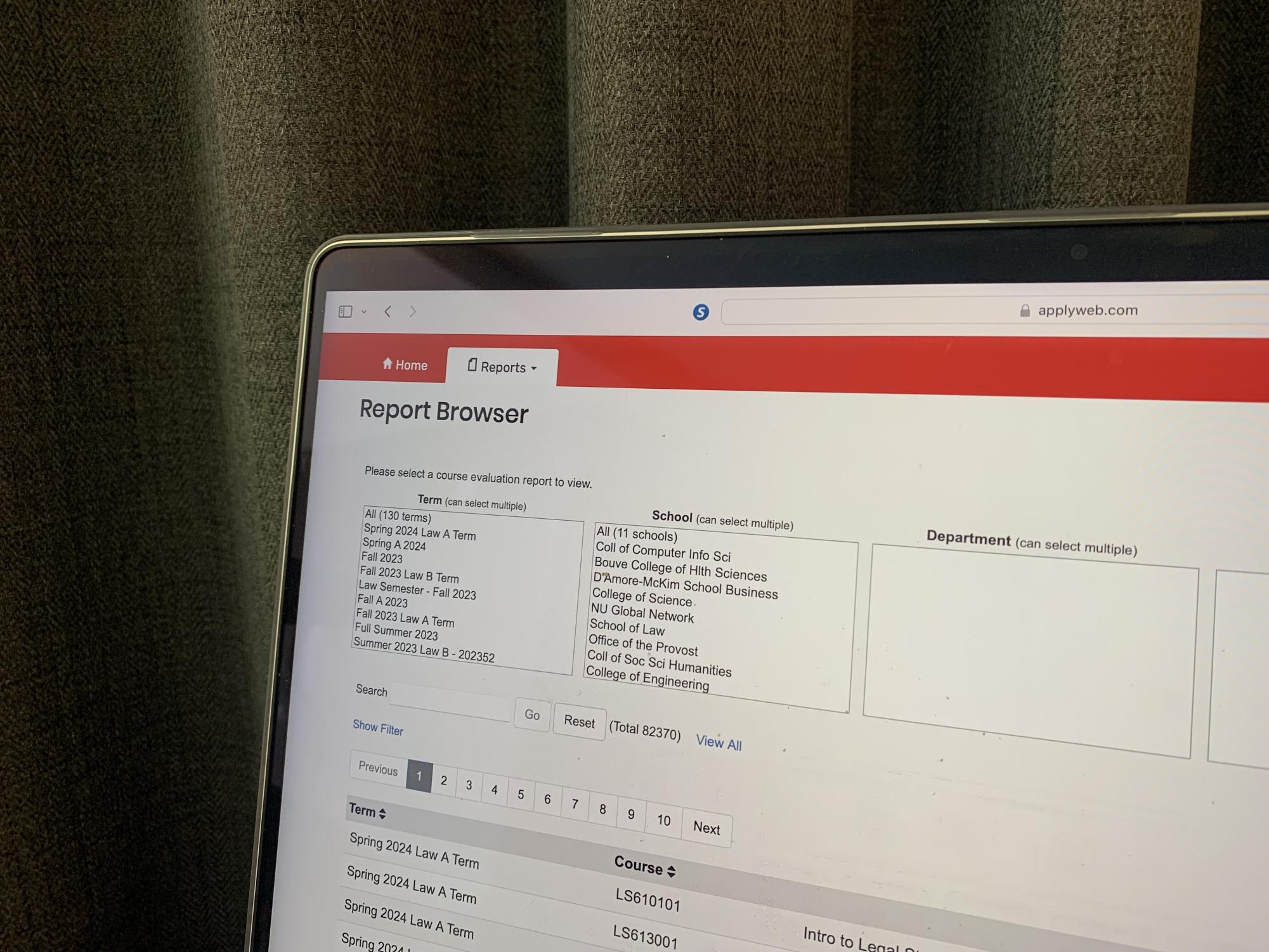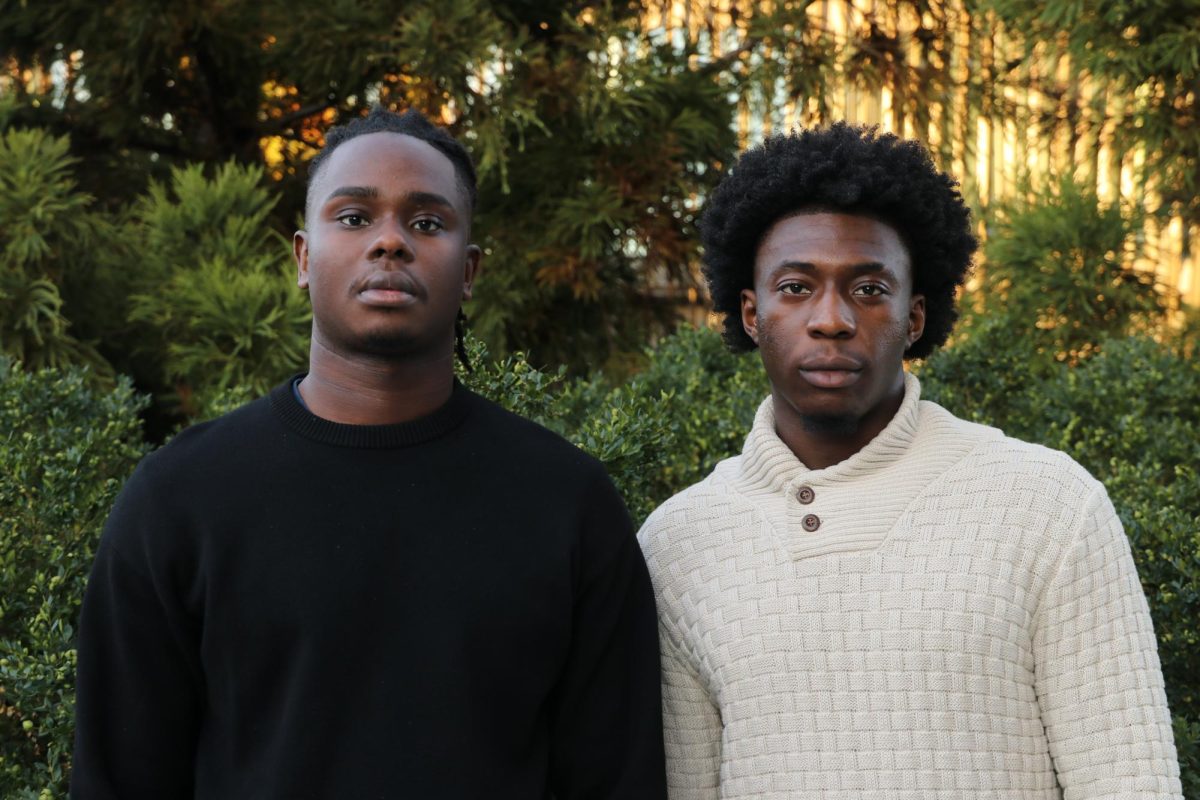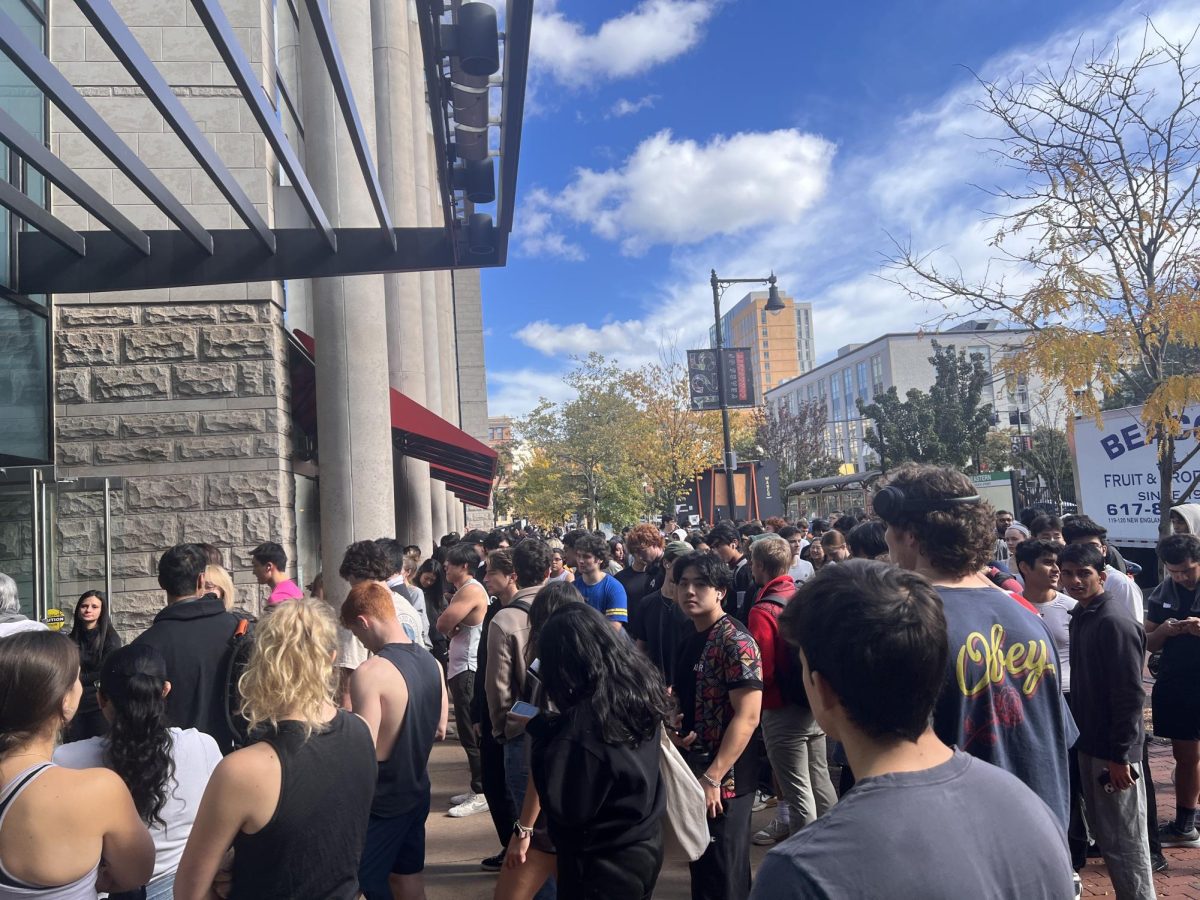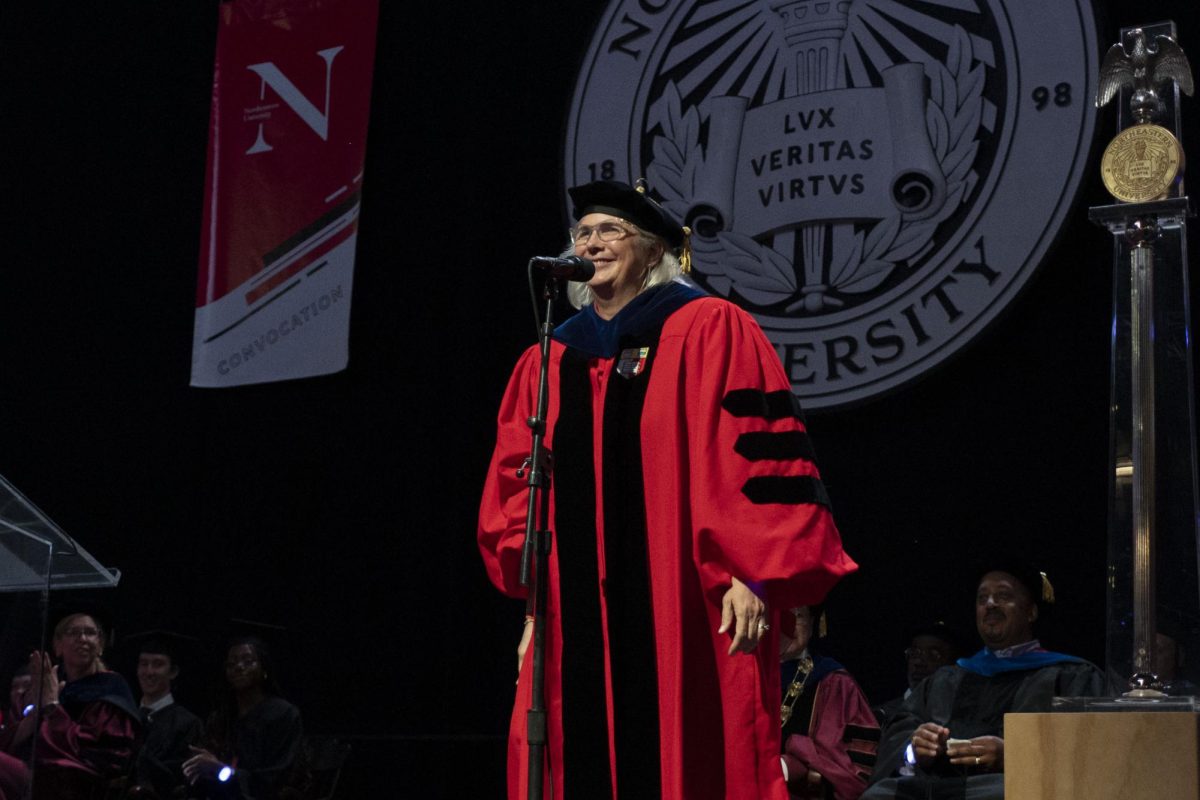As students will soon be able evaluate their professors and classes for the spring 2024 semester using the Teacher Rating and Course Evaluation survey, results from last fall show overall satisfaction with the education provided by Northeastern.
Results from the Teacher Rating and Course Evaluation, or TRACE, survey for fall 2023 were released in January, providing insight into how students view their experiences with their courses and instructors from the past semester. The spring 2024 survey will open Tuesday at 9 a.m and close at 11:59 p.m. April 26.
The results, which are gathered from anonymous feedback provided by undergraduate and graduate students, illustrate little change in students’ opinions from spring 2023 and a favorable outlook on academic efforts within the university. Teachers and courses across every college earned on average a 4.0 out of 5.0 possible rating or higher in all survey criteria.
The evaluation includes a series of questions assessing various topics related to student satisfaction with classes and professors, including factors like the online environment, course requirements, facilitation of learning and instructor proficiency.
Students rank how well the course and instructor met the given requirements based on a scale from “strongly disagree” to “strongly agree.”
The data are then translated into numeric scores, with a maximum possible score of 5.0. The information can be viewed on various scales, including at professor, department, college and university-wide levels.
In the fall 2023 semester, instructors across the university held an average of 4.5 for teaching effectiveness and instruction practices, demonstrating no change since spring 2023. However, there has been a slight increase in teaching effectiveness from a fall 2022 score of 4.4 points.
Learning and course-related scores for the university similarly showed no fluctuations over the past year, hovering at an average of 4.3. Online learning showed the greatest change, increasing from a university average of 3.6 in fall 2022 to 4.3 in spring 2023.
The evaluation also sought feedback from students on the difficulty of their courses. Around 80% of all students agreed the courses they took were intellectually challenging, while 12% felt neutral on the issue, 4% disagreed and 2% strongly disagreed. Courses in the College of Arts, Media and Design, or CAMD, were perceived to be the least difficult, with 76% of students reporting they found their classes to be challenging.
Eighty-five percent of students in both the College of Science, or COS, and the College of Engineering, or COE said they were challenged by their courses, the highest percent among the university’s colleges.
Across the university, students also reported no change in the amount of time they devoted to coursework outside of class hours, allotting an average of 2.7 hours a week to an individual course. Around 30% of students said they spent two hours a week preparing outside of class, while 25.7% devoted three hours, 18.5% spent one hour, 14.3% spent four hours and 12.3% dedicated five hours a week per course.
Students in the College of Social Sciences and Humanities, or CSSH, reported devoting the least amount of time per course — an average 2.3 hours, while students in Khoury College of Computer Sciences recorded the most at 3.36 hours per course.
The College of Arts, Media and Design held the highest score for teaching effectiveness, with an average score of 4.6. In contrast, Khoury, the COS and the D’Amore McKim School of Business held the lowest instructor average effectiveness scores, with all three colleges earning a ranking of 4.4. The Bouvé School of Health Sciences, CSSH and the COE hovered in the middle at an average of 4.5 at each college.
Instructor ratings did not change in the past year, ranging slightly from 4.4 to 4.5 across all colleges.
Course rankings exhibited the same trends, excluding CSSH’s score which increased from 4.4 to 4.5 in the past year. Khoury’s average course score also increased to an average of 4.4 after it dropped to 4.3 in spring 2023.
The COS showed the greatest increase in the online component score in the past year, from a college-wide average of 3.3 in fall 2022 to 4.3 in spring and fall 2023.
Khoury, Bouvé and the COE showed the least amount of change, all increasing from 3.8 in fall 2022 to scores of 4.3, 4.4 and 4.4, respectively.
The survey has been annually produced by the Student Government Association and the faculty senate since 2008. TRACE results are then used to assess instructors’ teaching ability and in turn inform their compensation, as well as to improve courses.
Students are emailed toward the end of each semester to submit their responses. Responses are then submitted to and reviewed by the deans of each college, chairs of each department and individual instructors. The cumulative survey results are later published on Northeastern’s Student Hub for general student viewership one month after the survey closes.









